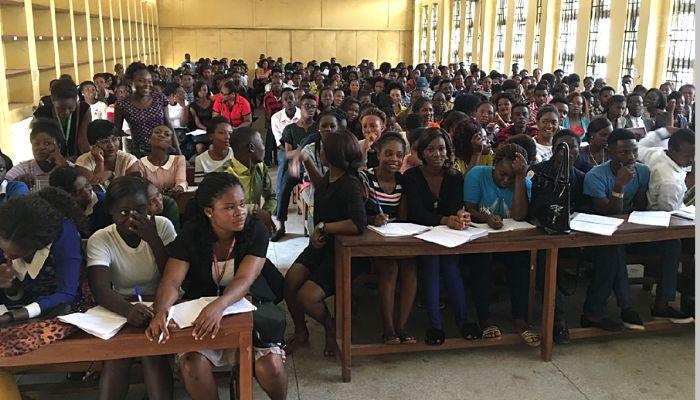
Keep up with the latest news and be part of our weekly giveaways and airtime sharing; follow our WhatsApp channel for more updates. Click to Follow us
Many Nigerian university students are lamenting the extra years they have spent in school due to circumstances beyond their control. One of the primary factors contributing to this trend is the frequent industrial actions embarked upon by university lecturers. The Academic Staff Union of Universities (ASUU) has gone on strike several times in recent years, disrupting academic calendars and leaving students idle for months.
This has resulted in not only wasted time but also a loss of momentum and interest in learning. Furthermore, the rising cost of tuition fees, particularly since the removal of fuel subsidies by the current administration, has added to the students’ woes.
The university system has long struggled with inadequate infrastructure, including lecture halls, laboratories, residential hostels, and quarters for academic staff. This is largely due to low budgetary allocations to education. The United Nations Educational, Scientific and Cultural Organisation (UNESCO) recommends that 26% of the budget be allocated to education, while the World Bank suggests between 20% and 30%. Nigeria’s National Policy on Education also stipulates that not less than 26% of the federal and state governments’ budgets should be allocated to education.
However, the highest budgetary allocation to education since 1999 was made in 2006, when President Olusegun Obasanjo allocated N202.4 billion to education, accounting for 10.7% of the total budget. In contrast, President Bola Ahmed Tinubu’s 2025 budget proposal allocates about 7.08% to education, amounting to N3.52 trillion out of the total N49.74 trillion budget.
This inadequate funding has forced many universities to increase their tuition fees, making it difficult for students from low-income backgrounds to afford. As a result, only students from wealthy families can attend university, exacerbating the country’s socio-economic inequalities.
In response to these challenges, some universities have introduced compulsory virtual lectures. For instance, the University of Lagos recently directed that all lectures be made virtual due to a shortage of accommodation and infrastructure. However, this policy has been met with criticism from students and academics, who argue that it may not provide the necessary hands-on experience for students, particularly those in practical-oriented courses.
Some students have already lost over two academic years due to policy flip-flops, while others have abandoned their studies to pursue better educational opportunities abroad. The situation is frustrating for many students, who are struggling to stay the course.
According to Professor Taofeek Yekeen of Ladoke Akintola University of Technology (LAUTECH), the directive to hold virtual lectures may be a temporary solution to address specific challenges within universities. However, he noted that there is currently no general directive for all Nigerian universities to migrate to virtual lectures.
“But in the long run, if it persists, there will be no problem; at lower levels, the first thing to be taught will be basic knowledge. If that is done offline or online, they may now specifically request students to assemble and do practicals after they have been grounded with theory,” he said.
Samson Akapo, a lecturer in the Department of Theatre Arts at the University of Ibadan, corroborated Yekeen’s statement, saying that there is no statutory directive for virtual learning at the moment. While some lecturers may choose to hold virtual classes due to peculiar circumstances, it is not a university-wide policy.
Please don’t forget to “Allow the notification” so you will be the first to get our gist when we publish it.
Drop your comment in the section below, and don’t forget to share the post.








